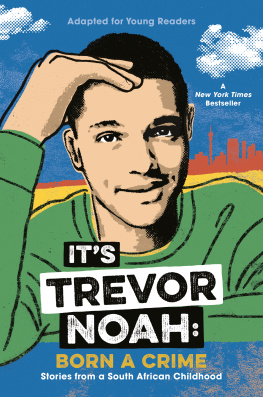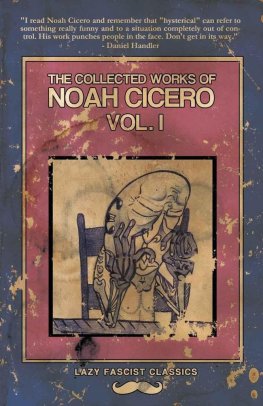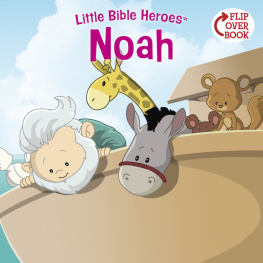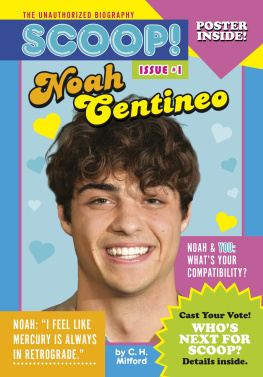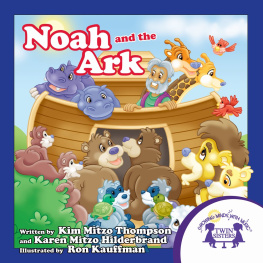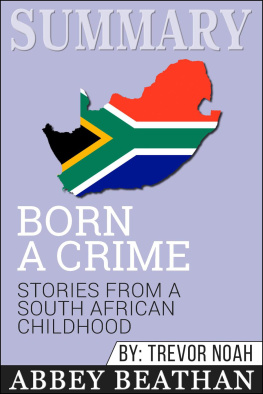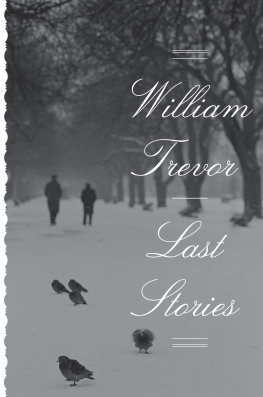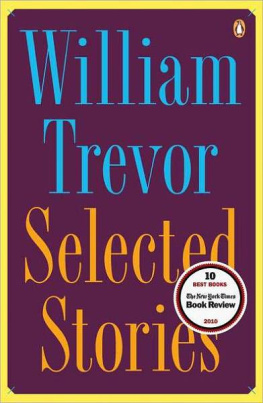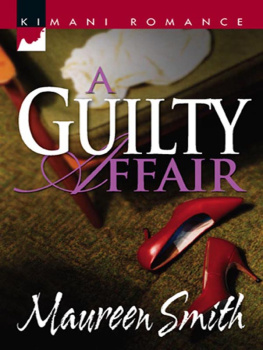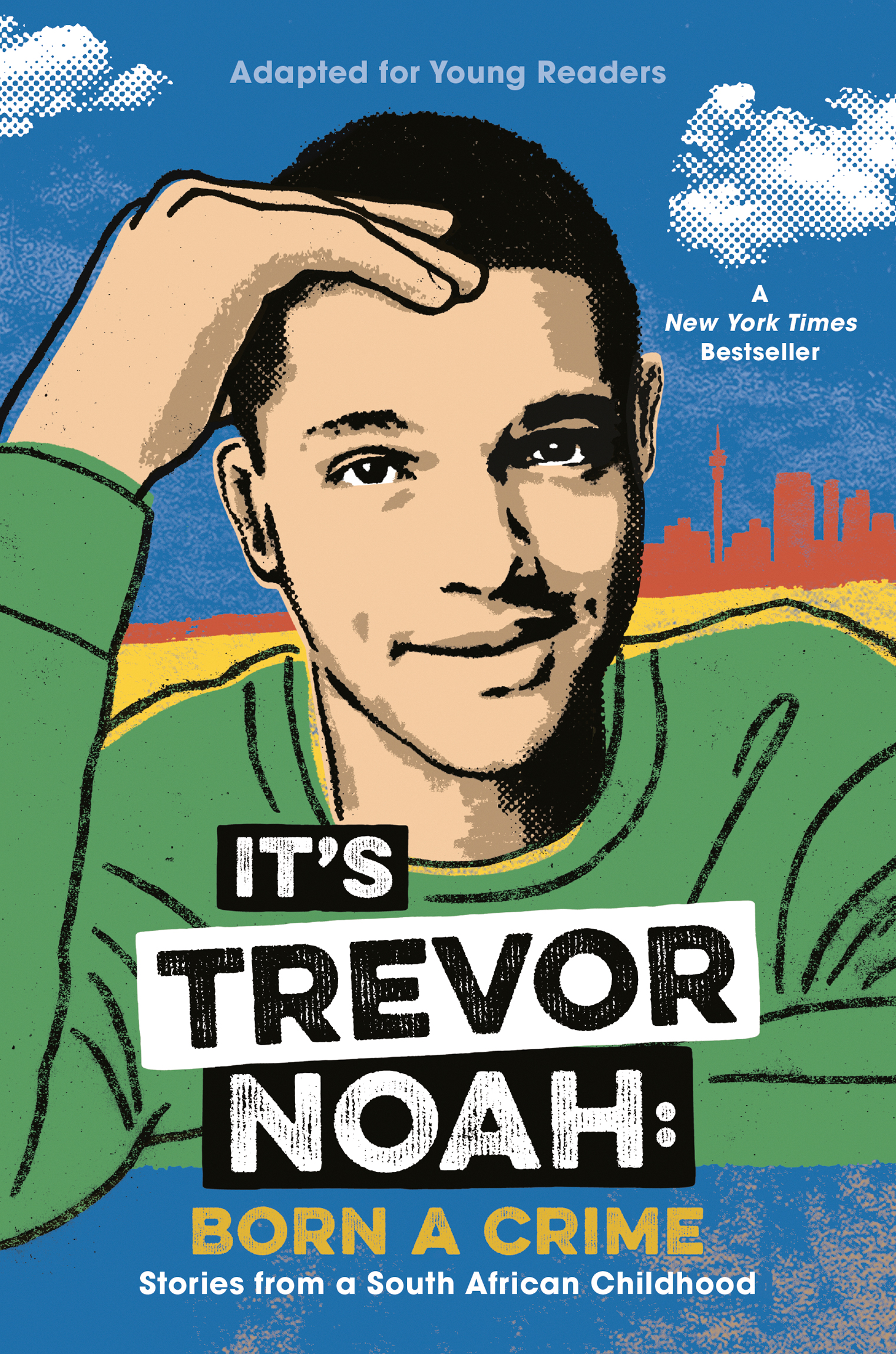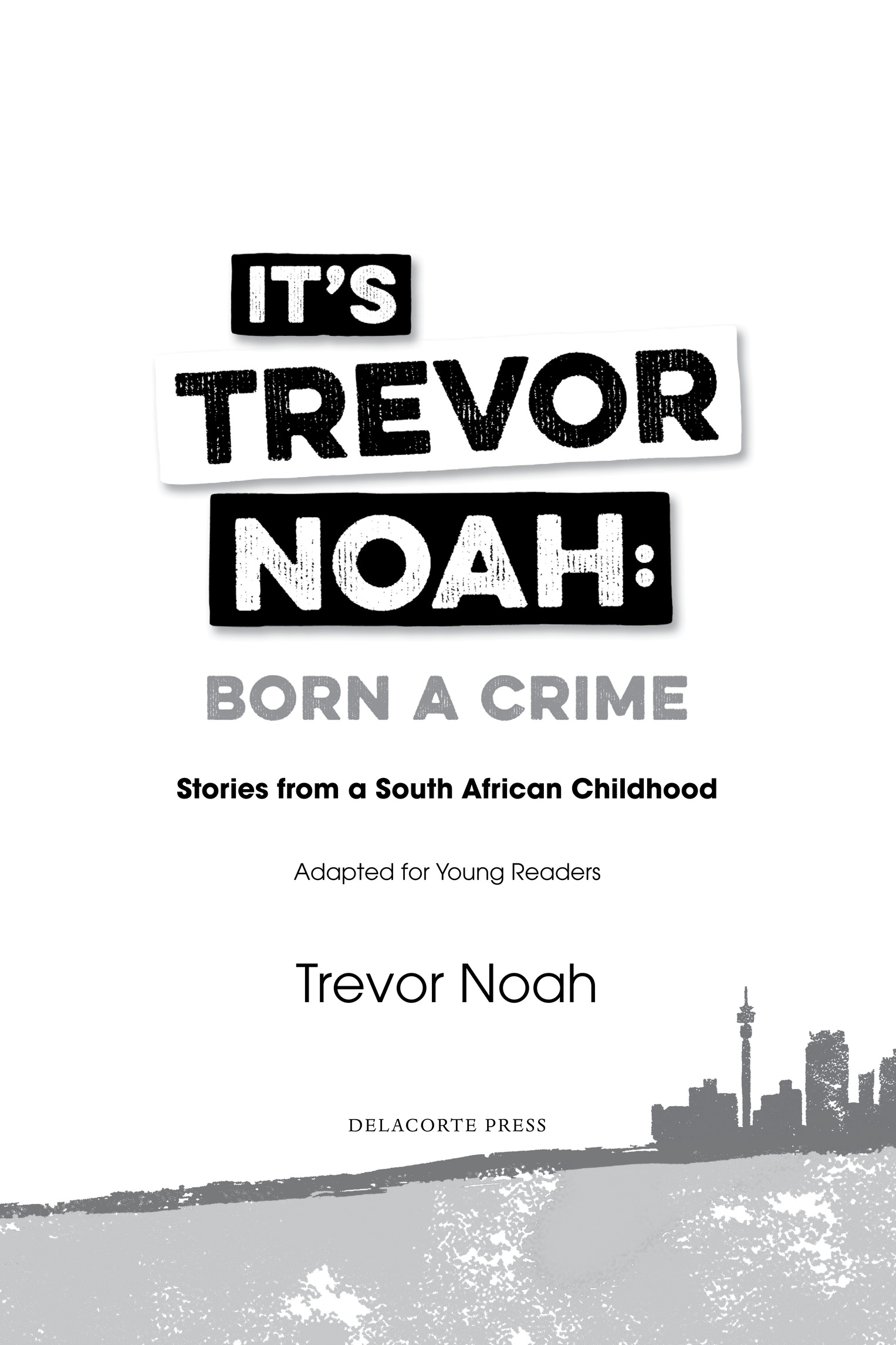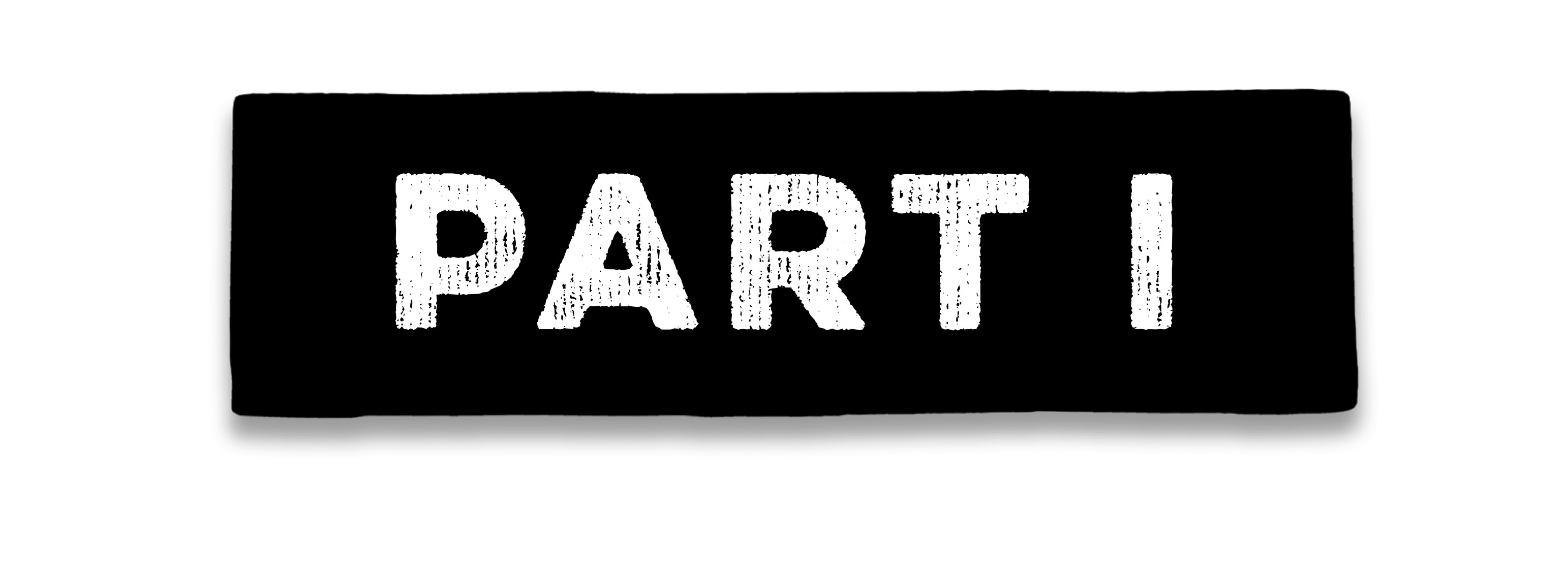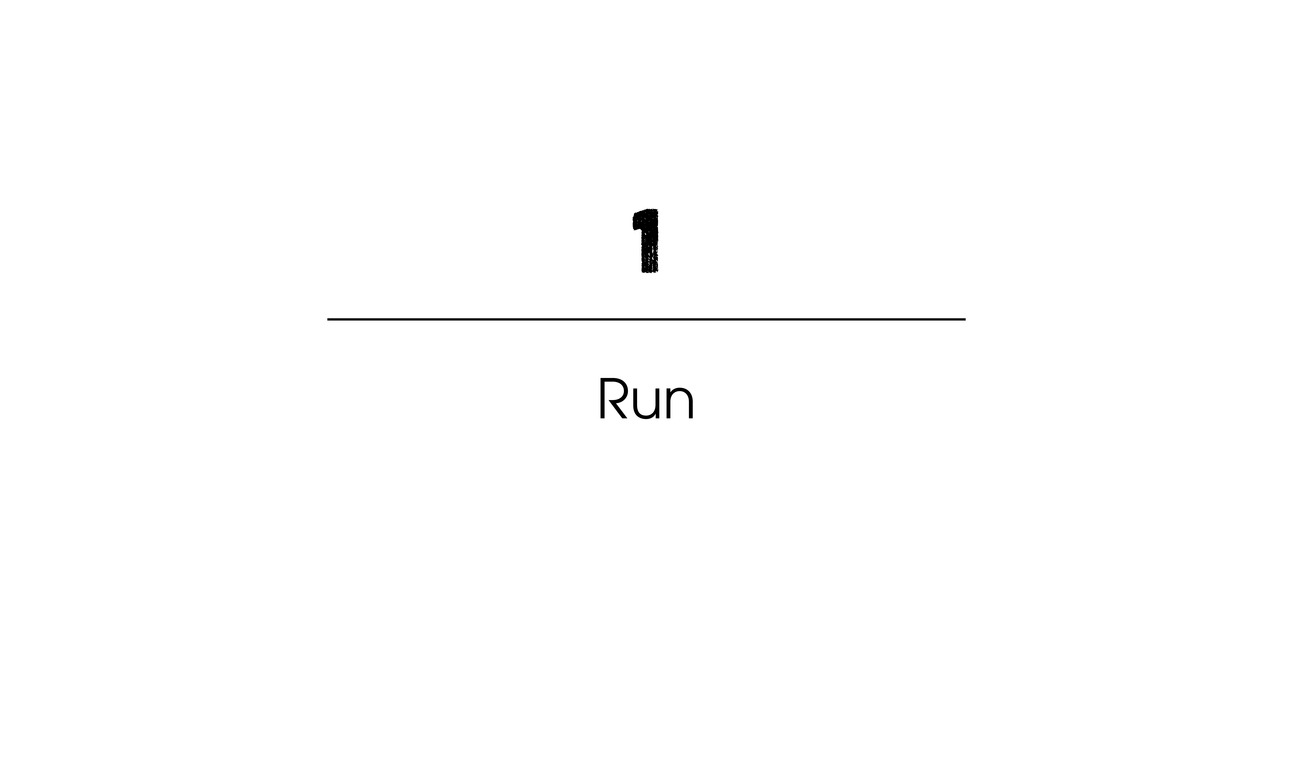Contents
Landmarks
Print Page List
Text copyright 2019 by Trevor Noah
Cover art copyright 2019 by Bob Bianchini
All rights reserved. Published in the United States by Delacorte Press, an imprint of Random House Childrens Books, a division of Penguin Random House LLC, New York.
This work is based on Trevor Noah: Born a Crime, copyright 2016 by Trevor Noah. Originally published in hardcover in the United States by Spiegel & Grau, an imprint of Random House, a division of Penguin Random House LLC, New York, in 2016.
Delacorte Press is a registered trademark and the colophon is a trademark of Penguin Random House LLC.
Visit us on the Web! rhcbooks.com
Educators and librarians, for a variety of teaching tools, visit us at RHTeachersLibrarians.com
Library of Congress Cataloging-in-Publication Data
Names: Noah, Trevor, author. | Noah, Trevor, Born a crime.
Title: Its Trevor Noah : born a crime : stories from a South African childhood ; adapted for young readers / Trevor Noah.
Description: New York : Delacorte Press, [2019]
Identifiers: LCCN 2018027891 (print) | LCCN 2018030775 (ebook) | ISBN 978-0-525-58218-2 (ebook) | ISBN 978-0-525-58216-8 (trade hardcover) | ISBN 978-0-525-58217-5 (library binding) | ISBN 978-1-9848-5189-5 (intl. tr. pbk.)
Subjects: LCSH: Noah, Trevor, 1984Juvenile literature. | ComediansUnited StatesBiographyJuvenile literature. | ComediansSouth AfricaBiographyJuvenile literature. | Television personalitiesUnited StatesBiographyJuvenile literature.
Classification: LCC PN2287.N557 (ebook) | LCC PN2287.N557 A3 2019 (print) | DDC 791.4502/8092 [B]dc23
Ebook ISBN9780525582182
Random House Childrens Books supports the First Amendment and celebrates the right to read.
ep_prh_5.4_c0_r1
Contents
For my mother. My first fan.
Thank you for making me a man.
Apartheidthe South African government policy of racial segregationwas genius at convincing people who were the overwhelming majority to turn on each other. Apart hate, is what it was. You separate people into groups and make them hate one another so you can control them.
During the years of Apartheid, black South Africans outnumbered white South Africans nearly five to one, yet we were divided into different tribes with different languages: Zulu, Xhosa, Tswana, Sotho, Venda, Ndebele, Tsonga, Pedi, and more. Long before apartheid existed, these tribal factions clashed and warred with one another. Then white rule used that animosity to divide and conquer. All nonwhites were systematically classified into various groups and subgroups. Then these groups were given differing levels of rights and privileges to keep them at odds.
Perhaps the starkest of these divisions was between South Africas two dominant groups, the Zulu and the Xhosa. The Zulu man is known as the warrior. He is proud. He puts his head down and fights. When the colonial armies invaded, the Zulu charged into battle with nothing but spears and shields against men with guns. The Zulu were slaughtered by the thousands, but they never stopped fighting. The Xhosa, on the other hand, pride themselves on being the thinkers. My mother is Xhosa. Nelson Mandelathe anti-apartheid revolutionary who was imprisoned for twenty-seven years and who eventually became South Africas first black presidentwas Xhosa. The Xhosa waged a long war against the white man as well, but after experiencing the futility of battle against a better-armed foe, many Xhosa chiefs took a more nimble approach. These white people are here whether we like it or not, they said. Lets see what tools they possess that can be useful to us. Instead of being resistant to English, lets learn English. Well understand what the white man is saying, and we can force him to negotiate with us.
The Zulu went to war with the white man. The Xhosa played chess with the white man. For a long time neither was particularly successful, and each blamed the other for a problem neither had created. Bitterness festered. For decades those feelings were held in check by a common enemy. Then apartheid fell, Mandela walked free, and black South Africa went to war with itself.
I was nine years old when my mother threw me out of a moving car.
It happened on a Sunday. I know it was on a Sunday because we were coming home from church, and every Sunday in my childhood meant church. We never missed church. My mother wasand still isa deeply religious woman. Very Christian. Like indigenous peoples around the world, black South Africans adopted the religion of our colonizers. By adopt, I mean it was forced on us.
My childhood involved church, or some form of church, at least four nights a week. Tuesday night was the prayer meeting. Wednesday night was Bible study. Thursday night was youth church. Friday and Saturday we had off. Then on Sunday we went to church. Three churches, to be precise. The reason we went to three churches was because my mom said each church gave her something different. The first church offered jubilant praise of the Lord. The second church offered deep analysis of the scripture, which my mom loved. The third church offered passion and catharsis; it was a place where you truly felt the presence of the Holy Spirit inside you. Completely by coincidence, as we moved back and forth between these churches, I noticed that each one had its own distinct racial makeup: Jubilant church was mixed church. Analytical church was white church. And passionate, cathartic church, that was black church.
Mixed church was Rhema Bible Church. Rhema was one of those huge, supermodern, suburban megachurches. The pastor, Ray McCauley, was an ex-bodybuilder with a big smile and the personality of a cheerleader. Pastor Ray had competed in the 1974 Mr. Universe competition. He placed third. The winner that year was Arnold Schwarzenegger. Every week, Ray would be up onstage working really hard to make Jesus cool. There was arena-style seating and a rock band jamming with the latest Christian contemporary pop. Everyone sang along, and if you didnt know the words that was okay because they were all right up there on the Jumbotron for you. It was Christian karaoke, basically. I always had a blast at mixed church.
White church was Rosebank Union in Sandton, a very white and wealthy part of Johannesburg. I loved white church because I didnt actually have to go to the main service. My mom would go to that, and I would go to the youth side, to Sunday school. In Sunday school we got to read cool stories. Noah and the flood was obviously a favorite; I had a personal stake there. But I also loved the stories about Moses parting the Red Sea, David slaying Goliath, Jesus whipping the money changers in the temple.
I grew up in a home with very little exposure to popular culture. My mom didnt want my mind polluted by sex and violence. The only music I really knew was from church: soaring, uplifting songs praising Jesus. It was the same with movies. The Bible was my action movie. Samson was my superhero. He was my He-Man. A guy beating a thousand people to death with the jawbone of a donkey? Thats pretty fierce. Eventually you get to Paul writing letters to the Ephesians and it loses the plot, but the Old Testament and the Gospels? I could quote you anything from those pages, chapter and verse. There were Bible games and quizzes every week at white church, and I always trounced everyone.

